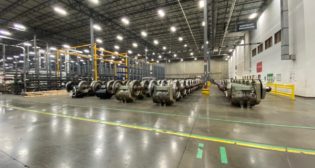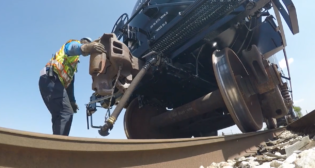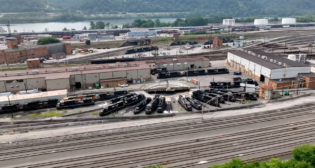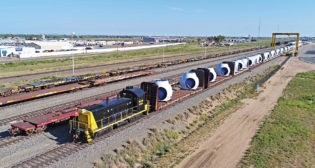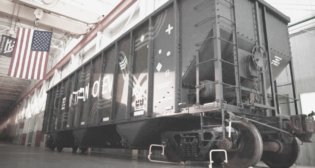
Tank Car Industry: Essential and Safe
Written by Michael O’Malley, President, Railway Supply InstituteAs federal, state and local governments across North America scramble to respond to the COVID-19 pandemic, railroads and their suppliers—including tank car builders, repair shops, and lessors—are doing their part to get essential goods to where they are most needed.
Early in this crisis, railway suppliers were designated as essential by the U.S. Department of Homeland Security’s Cybersecurity Infrastructure Security Agency (CISA), given that we are a key component of the nation’s critical infrastructure workforce. During any crisis, North America’s rail systems must continue to operate without disruption, supported by a reliable network of manufacturing, maintenance and repair facilities and their employees. These essential workers have played an important but often overlooked role in ensuring that railroads continue to successfully support America’s COVID-19 response.
As part of these efforts, members of RSI’s Committee on Tank Cars (RSI-CTC), the leading voice for the tank car manufacturing and supply industry, are supporting delivery of critical food, chemical and energy products while also taking steps to enable their employees to remain safe and healthy at work. COVID-19 has and will continue to create real challenges for our industry and the nation, and our members will keep delivering for their customers across North America while we all work together to bring our economy back.
RSI-CTC members also continue their long history of improving safety. During the past several years we have made great progress toward meeting deadlines for the phase-out of all DOT-111 and CPC-1232 tank cars carrying flammable liquids. Due to the efforts of RSI-CTC members, we now have more than 70,000 DOT-117 tank cars operating in North America. Although the cause of accidents is rarely found to be the tank cars, these improvements to the fleet have already resulted in a 74% reduction in the chance of a crude oil spill and a 52% reduction in the chance of an ethanol spill when an accident does occur.
We always follow with interest any incidents involving tank cars. Earlier this year, the Canadian government took aggressive actions after a second derailment involving tank cars occurred in rural Saskatchewan. We support the Canadian government’s comprehensive response to these incidents, which addresses several factors that contribute to an accident rather than focusing only on the cars carrying the crude oil. Our government and industry partners must continue to consider policies and practices that address rail infrastructure and human factor-related issues, the two most common causes of derailments in North America, as well as those tied to tank cars.
